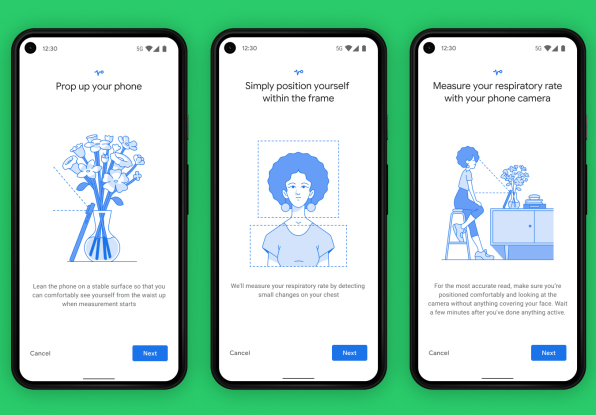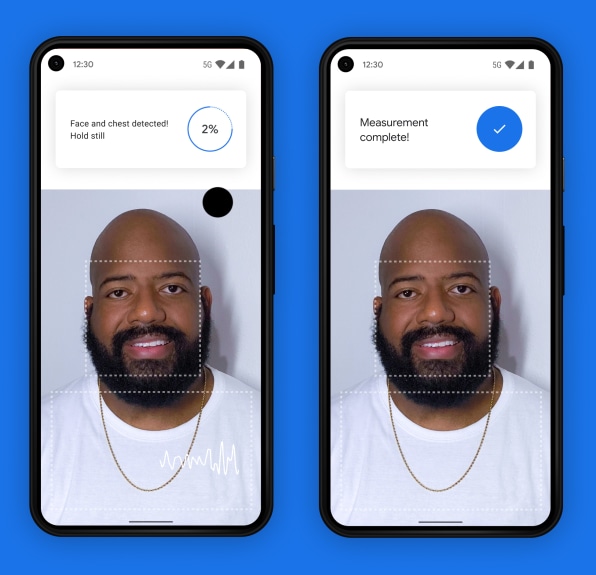- 11:00 am
A new Google feature can detect your heart and breath rate with your phone’s camera
Google can use the Pixel’s cameras to pull out health signals by detecting tiny fluctuations in skin color and movement.

Heart and respiratory rate tracking is nearly ubiquitous on sleek fitness bands and bulbous smart rings. Where those kinds of metrics are not yet universal is on smartphones. On Thursday, Google announced plans to change that by launching new software that can capture your heart rate and breathing rate through your phone’s camera lens. The technology will be rolled out inside of Google Fit, the company’s health tracking platform, on Pixel phones.
To determine your breathing rate, the new application inside of Google Fit directs you to take a bust-length portrait-style photo of yourself. This allows the phone’s camera to see how fast your chest is rising and falling, from which it can calculate respiratory rate. To capture heart rate, you place your fingertip over the camera. The app then follows changes in skin color to measure blood flow. It uses photoplethysmography, the same technology as existing apps on the market that track skin-color changes to pick up on biological signals.


Google already provides heart rate monitoring through Fitbit, its recently completed acquisition, though the team at Google Health hasn’t started working with the wearable company yet. Google Fit reports having “millions” of monthly users across Android, iOS, and Wear OS (many of whom are likely clocking in on wearable devices). Meanwhile, Fitbit, per its last update, has roughly 30 million users. So why put this technology on your phone at all?

“If you think about what doctors do, we get a measurement every six months when we show up to the office and we base clinical decisions on that,” Po says. This is partially true. Doctors do keep track of single measurements like heart rate, blood pressure, and aspects of breathing over time. However, they make diagnostic decisions through assessing data points in context with each other, not off of a single biometric.
It appears that Google’s engineers want to make use of more smartphone sensors to pick up on health metrics that can provide that context. We’re likely to see other such smartphone innovation in the future (especially as Google starts working with Fitbit). In the meantime, this latest tech launch from Google reveals the company is pushing toward making digital health products far more accessible.








 User Center
User Center My Training Class
My Training Class Feedback
Feedback











